ATHENS — As automation continues to become the new industry standard for larger corporations streamlining production, nearly one-third of small businesses are also embracing automation in their own markets.
Why It’s Newsworthy: Large, transnational businesses are increasingly incorporating automation into their business models. With many small businesses in Athens, these smaller corporations are faced with deciding how to use available technology to compete while keeping their own values.
At 1000 Faces in Athens, Georgia, music plays quietly in the background as baristas grind coffee beans, steam milk and artfully pour spices on top of drinks before setting them on a clean white counter where they wait for a coffee drinker to pick them up and bring them back to their reading or small groups of chatting friends.
Front-of-house manager Kally Revels described 1000 Faces as “a friendly, third wave coffee shop” where employees are “really nerdily into coffee.”

Community and Sustainability
Third wave coffee shops are considered a response to “second wave” shops like Starbucks and similar coffee corporation chains. Typical main values of third wave coffee shops are artisanship, aesthetic and traceability.
At 1000 Faces, this means that members of the staff take routine trips to Latin America and Africa to source beans and meet farmers.
During a trip to Brazil in August 2019, 1000 Faces staff sourced a new coffee from the Fazenda São Manoel, a farm owned by Carlos Emanuel Costa and his family. After extensive research and building a relationship with this local farmer, the coffee has become part of 1000 Faces’ Bell’s Blend roast and has been named Carlos Costa after the farmer.
General manager Mike Young said their goal is to “serve our community well and treat everyone on the supply chain with equity.”
Revels said that storytelling is an important aspect of the traceability of their coffees, and many roasts are named after the farmers that grew those beans. When 1000 Faces staff return from a sourcing trip, they have developed a personal relationship with farmers. They share those personal stories with customers, connecting people passionate about coffee around the world.
“We really value sustainability,” Young said. “That goes for our cafes at this end of the supply chain but also economic and social sustainability for our producing partners, our coffee farmers.”
Instead of buying the cheapest packaging products like cups or mass-produced spices and syrups, Revels said they choose to use only compostable packaging and locally-produced chocolate syrup from Condor Chocolates.
“We choose to make less money so that we can invest in both the environment and other local businesses,” Revels said.
However, the market that 1000 Faces and other service industry small businesses operate within is changing due to advances in technology and automation.
Small-Scale Automation
According to the National Small Business Association, many small businesses like 1000 Faces are embracing automation. Their online report conducted from December 2017 to January 2018 among 1,633 small business owners shows that 32% anticipate implementing automation within the upcoming year. Still, only 9% expect to need fewer employees after implementing automation.
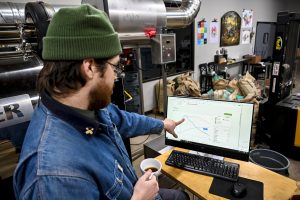
Technology is essential to Director of Coffee Ben Bowdoin at 1000 Faces. In a room adjacent to the bustling, bright coffee shop, Bowdoin monitors a large metal machine that roasts coffee beans four days each week.
A large metal cylinder that Bowdoin described as “a hybrid between a clothes dryer and an oven” rotates raw, green coffee beans as they are heated by burners powered by natural gas.

During each roasting period, a computer program takes temperature, gas and airflow measurements. This allows Bowdoin to compare to previous roasts, follow a recipe and make adjustments throughout the roasting process.
Outside of the roasting room, 1000 Faces also embraces new technologies and automation in areas like scheduling staff, accounting and placing out-of-store orders.
“Some people email, some people who are ordering cold brew batches literally just text the production manager. We’ve been trying to work on a cohesive, better way of ordering,” Revels said as she explained their efforts towards using technology to streamline the ordering process for wholesalers and online customers.
1000 Faces also uses technology for tasks that do not involve customer service or handling of their final product. Their baristas use Square technology to check out customers which links to QuickBooks for accounting.
Laura Katz, area director of the University of Georgia Small Business Development Center Athens Office, said that trends seen at 1000 Faces “would be pretty common among other small businesses in the service industry in Northeast Georgia.”
According to Katz, small businesses, defined in this context as limited liability companies with fewer than 50 employees, typically do the labor themselves or subcontract it out, as automation is typically too expensive. However, many use technology like Clover or Square to streamline checkout processes and link to QuickBooks to automate accounting services.
Employees or Machines
However, for economic and social reasons, 1000 Faces leadership has decided against adopting some available, feasible automation technologies.
A few years ago, 1000 Faces owners and managers considered purchasing a bagger machine that would automate the bagging process, packaging beans into paper bags and labeling them for purchase in-store and online. Ultimately, purchasing a bagger was too large of an up-front investment for their small business. They chose to invest in a human member of their team rather than replace that job with a machine.
Now, Young said the company has grown to the point of possibly needing to hire another team member. He has been investigating the purchase of a conveyor belt bag sealer that would free up existing staff to take on different roles.
Investing in this piece of automation would not decrease 1000 Faces’ need for existing employees but would instead allow them to produce more coffee each month without hiring another employee.
Right now, they are capable of roasting about 6,000 pounds of green coffee each month with 14 employees.

Humans Above Machines
“There are certain things that machines can help us do more efficiently, and then there are some things that really do require the human touch, things like being a barista,” Young said.
“The nature of coffee is a lot more hands-on,” Reeves added.
While small businesses like 1000 Faces start to adopt some automation technology, the goal and nature of their socially-conscious, customer-facing businesses means full automation is not compatible with their long-term plans.
Taylor Gerlach is a junior majoring in journalism and sociology in the Grady College of Journalism and Mass Communication and the Franklin College of Arts and Sciences at the University of Georgia.


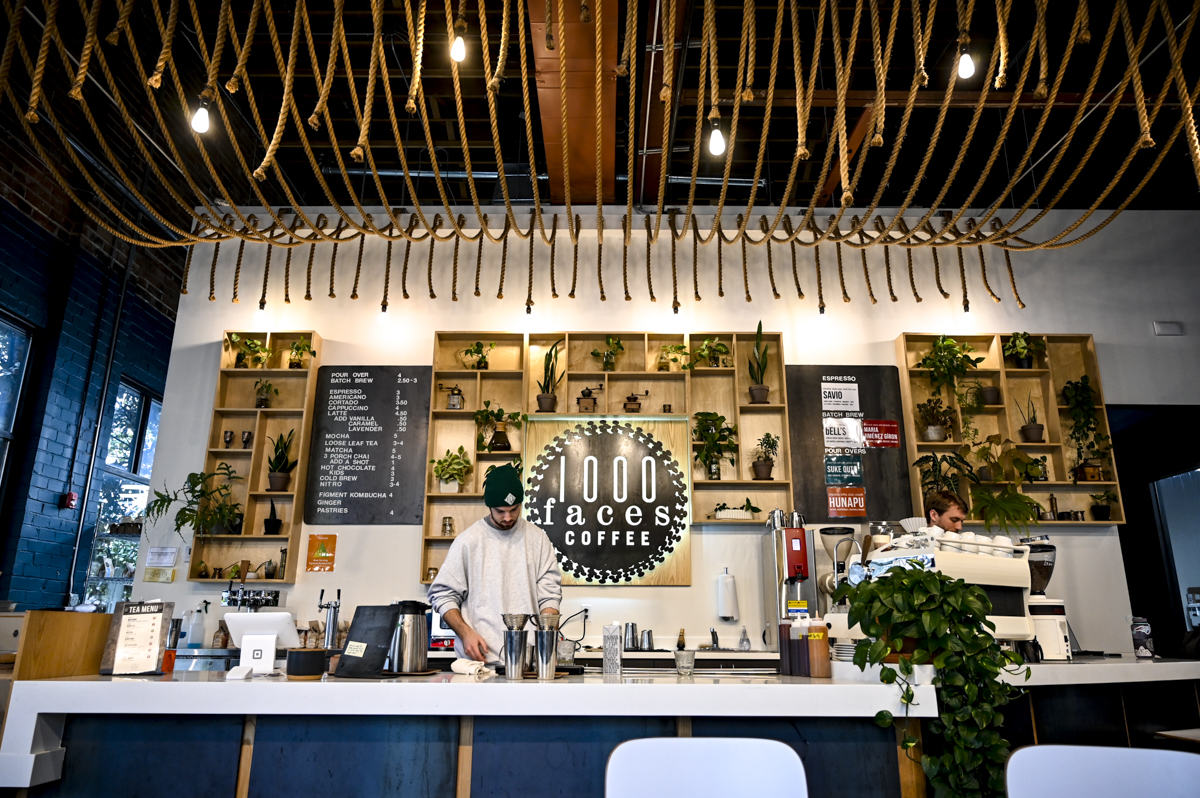
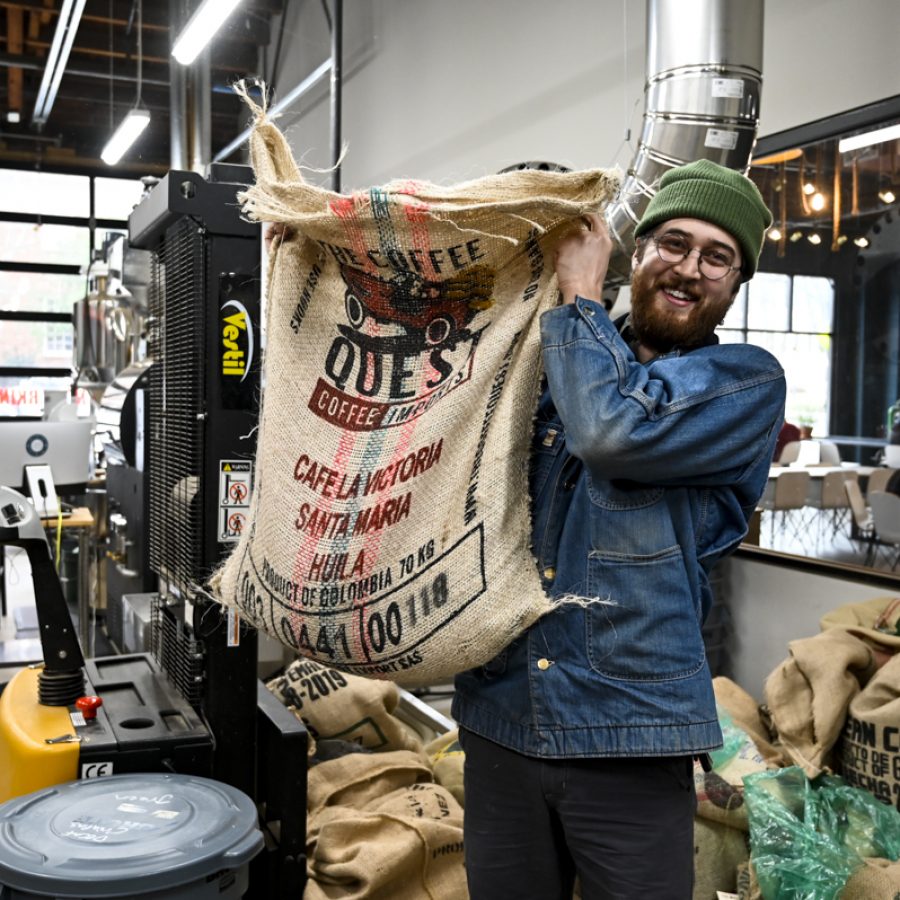



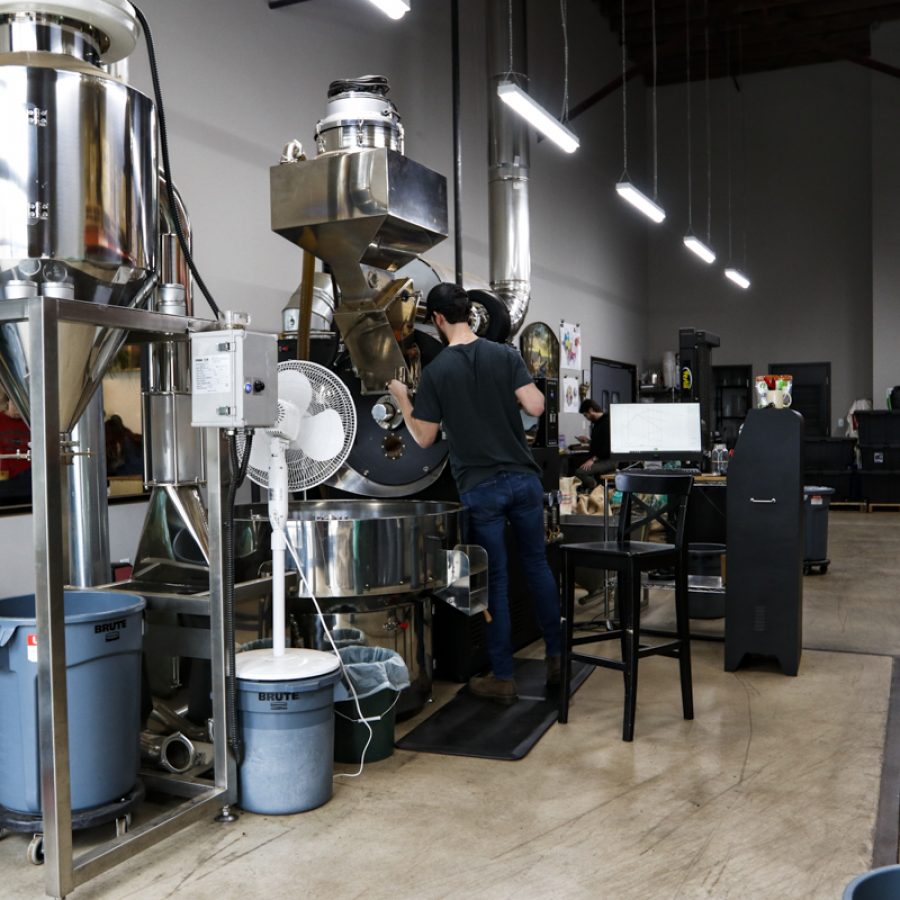




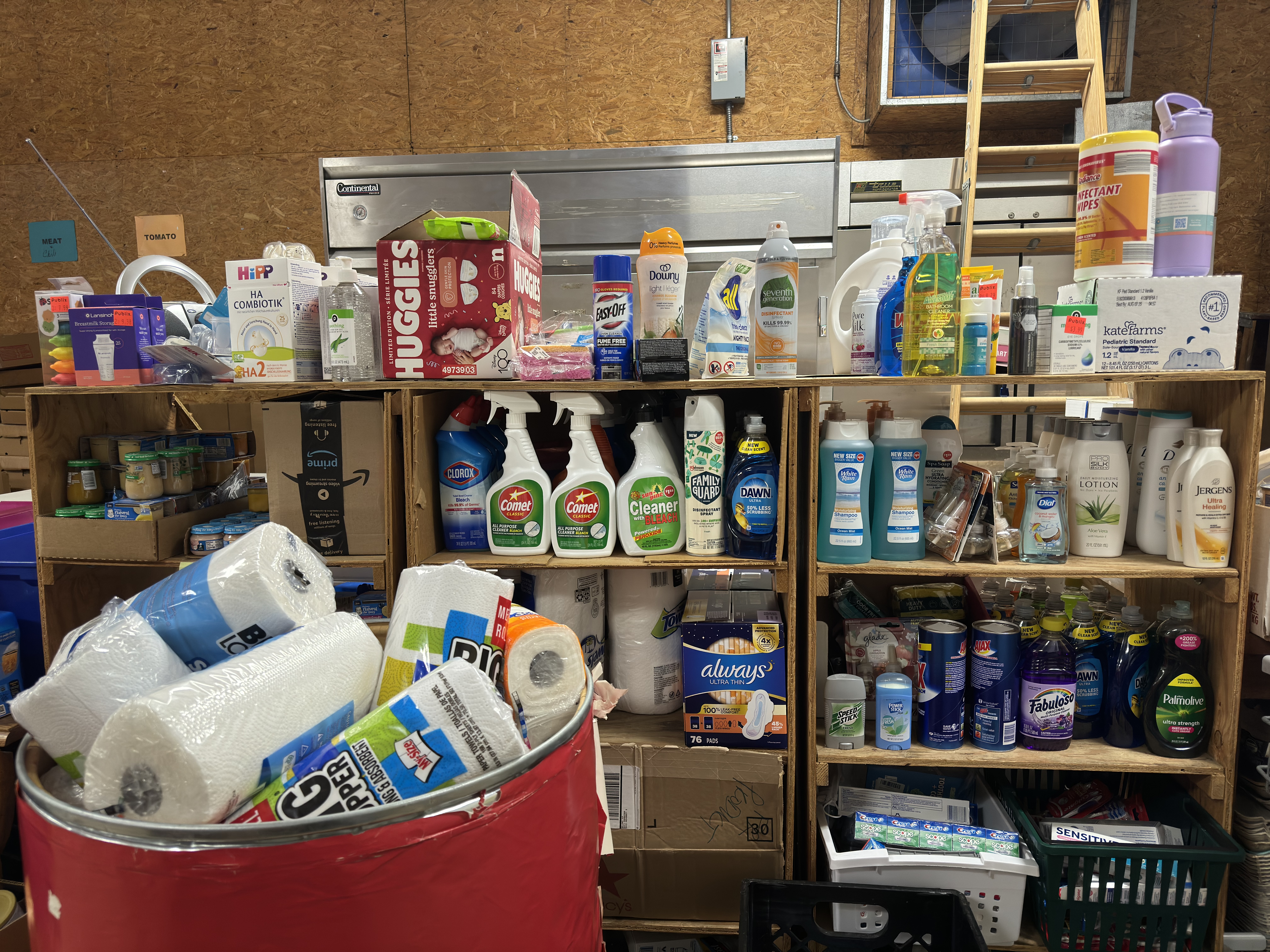

Show Comments (1)
IT Telkom
How did 1000 Faces, a local coffee shop in Athens, respond to the automation trend in their operations?